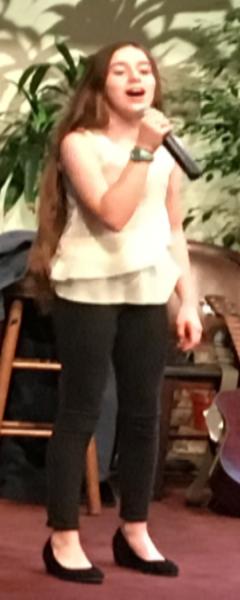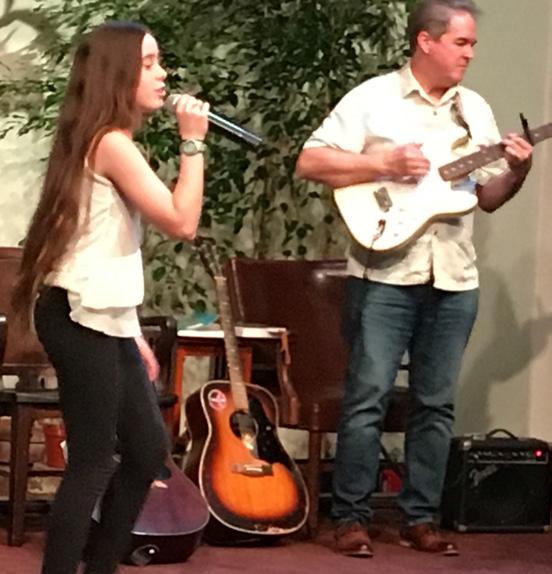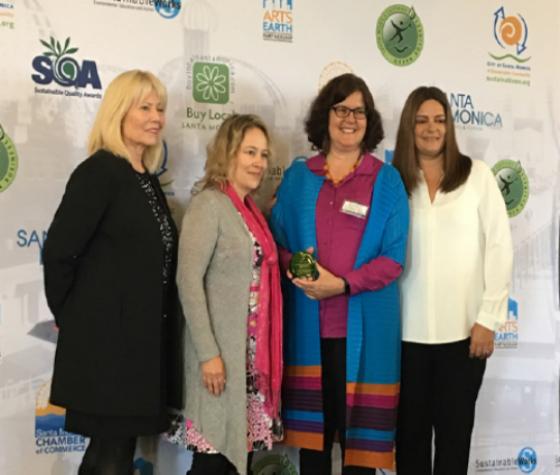Newsletter for May, 2018
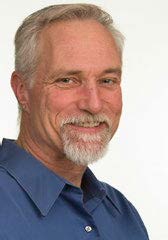 To the Glory of Life
To the Glory of Life
Dear Friends,
In ministry, I’m fascinated with exploring “well-being”– the degree to which people feel secure, happy, engaged, and successful (by whatever criteria they set). After 20 years in ministry, I think I’ve discovered some of what propels people into well-being; and some of what robs us of it.
Creativity, imagination, curiosity, play, innovation, in generous amounts, lead to ideas, discovery, understanding, connections, empathy, trust – which are vital to making meaning, shaping stories, forming narratives and, ultimately, well-being.
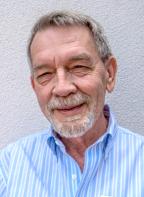 Changes, and Right Relations
Changes, and Right Relations
Right Relations - Where Do We Go from Here?
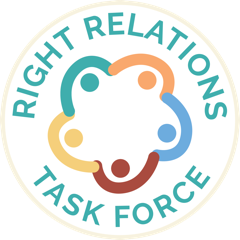 You may ask: So, then will we be done with Right Relations? Well, no. On March 8 and April 26, Right Relations Team and Support offered Communications Skills workshops, with more to come this month and in June. The workshops will cover Non-Violent Communication techniques and understandings, the empathetic practice of RASA (Receive, Appreciate, Summarize and Ask), more in-depth work in identifying needs that underlie conflict, ways to transform the inevitability of conflict and to prevent our limbic system from controlling our responses.
You may ask: So, then will we be done with Right Relations? Well, no. On March 8 and April 26, Right Relations Team and Support offered Communications Skills workshops, with more to come this month and in June. The workshops will cover Non-Violent Communication techniques and understandings, the empathetic practice of RASA (Receive, Appreciate, Summarize and Ask), more in-depth work in identifying needs that underlie conflict, ways to transform the inevitability of conflict and to prevent our limbic system from controlling our responses.Stewardship Corner: A Step in the Right Direction
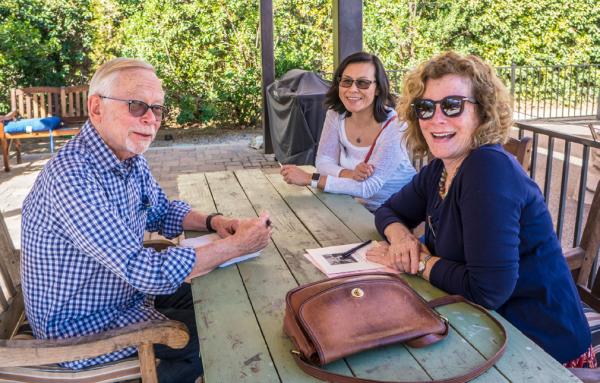 Last month, we talked about the importance of building a stable financial base within the church for sustainable financial health. During his March 11 sermon, Rev. Greg presented graphs, which showed that the majority of pledges were below what would be expected for a church of our size and cost-of-living area. In an effort to raise the pledge base, a Spring Pledge Campaign was launched, running from March 11 to April 9, which was supported by a newly formed Sustainability Fund.
Last month, we talked about the importance of building a stable financial base within the church for sustainable financial health. During his March 11 sermon, Rev. Greg presented graphs, which showed that the majority of pledges were below what would be expected for a church of our size and cost-of-living area. In an effort to raise the pledge base, a Spring Pledge Campaign was launched, running from March 11 to April 9, which was supported by a newly formed Sustainability Fund.co-chairs Stewardship Committee
UUSM Annual Meeting - Sunday, May 20 - 12:30 p.m. - Sanctuary
Summer Schedule Starting
Sunday, May 20 will begin our summer worship schedule of ONE SERVICE AT 10 AM.
The May 20 service will be followed by our annual meeting at 12:30 pm. Please note: one service each Sunday at 10 am until September 23.
June Newsletter Deadlines
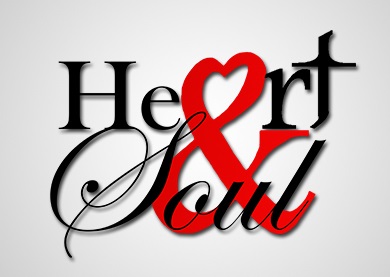 Heart to Heart Contemplative Worship Service:
Heart to Heart Contemplative Worship Service:
WHAT DOES IT MEAN TO BE A COMMUNITY OF CREATIVITY?
Sunday, May 13 5 pm to 5:45 pm
Rev. Greg’s Sunday Sermons Available for Purchase
Second Sunday Supper in May - Hosted by the Heart to Heart Circles Committee
May 13 • 6 to 8 pm • Forbes Hall
Second Sunday Cinema - May 13 • 7:30-9:30 pm • Sanctuary
 Brick Installation Memorial Day Weekend
Brick Installation Memorial Day Weekend
Environmental Stewardship Award
Lunch on Sunday May 20 Benefits LRE Matching Fund
 Enjoy lunch before the church’s Annual Meeting and support the Lifespan Religious Education program at the same time! The LRE Committee is preparing many different vegetable salads, pasta salad, baked chicken, and
Enjoy lunch before the church’s Annual Meeting and support the Lifespan Religious Education program at the same time! The LRE Committee is preparing many different vegetable salads, pasta salad, baked chicken, andSacred Nature: The Emerging Theology of Religious Naturalism
UUJMCA Regional Justice Training Embraces “Love Resists” Campaign
 UUSM at Children’s March in Washington DC
UUSM at Children’s March in Washington DC
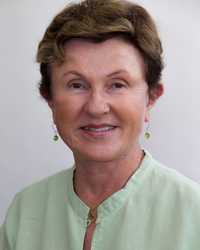 Board Discusses Budget, Future Leadership
Board Discusses Budget, Future Leadership
What I Learned in Sunday School: A Visit to Neighboring Faiths

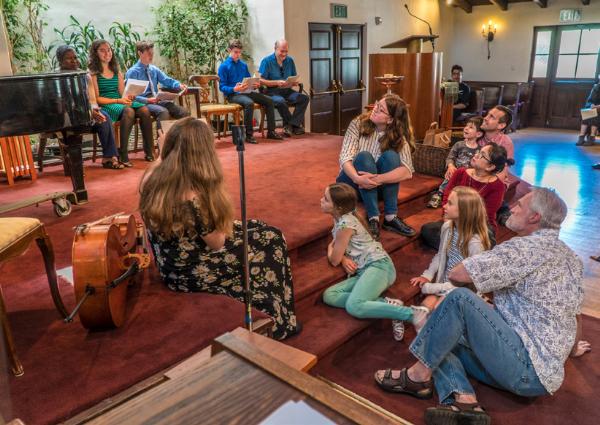
UUSM Youth at the United Nations
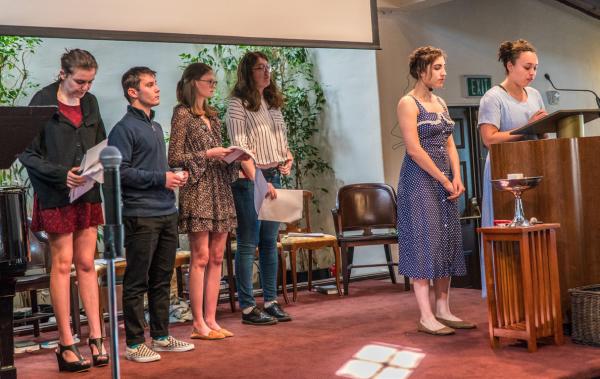
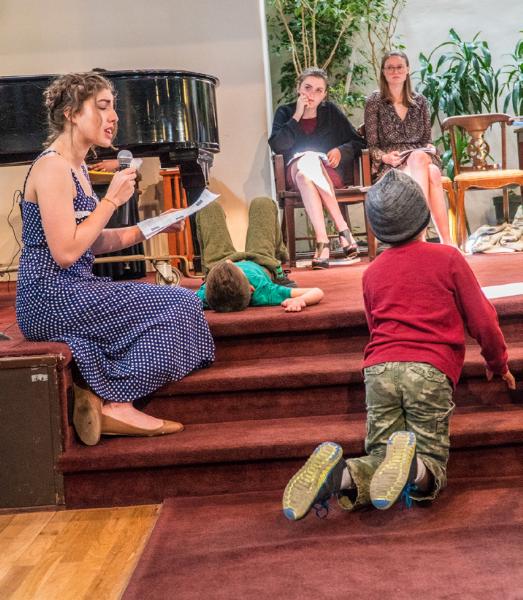
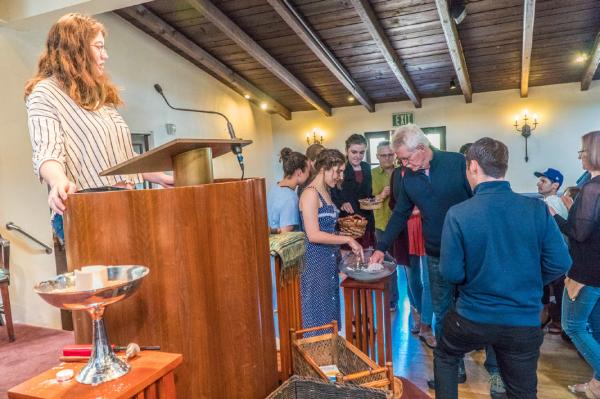
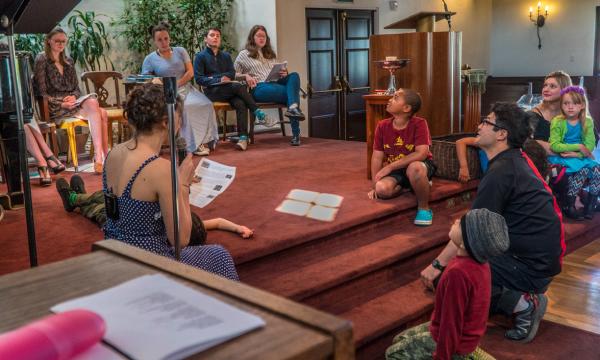
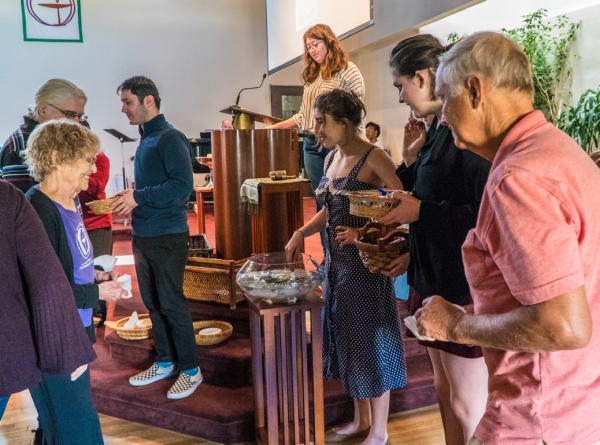
From the Director of Religious Exploration: Emergence and Creativity
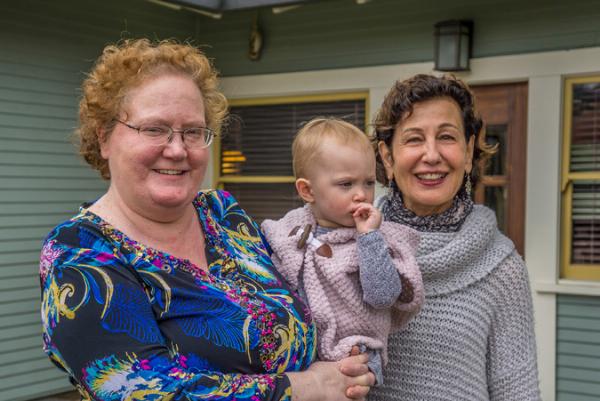 How wonderful that the Soul Matters theme for last month was emergence, and this month it is creativity! In April, during The Time For All Ages, we talked about our brains and of what could emerge if we use our non-dominant hand. We discovered that one of the things this enhances is creativity. I hope you have all been using your non-dominant hands, because I need your help.
How wonderful that the Soul Matters theme for last month was emergence, and this month it is creativity! In April, during The Time For All Ages, we talked about our brains and of what could emerge if we use our non-dominant hand. We discovered that one of the things this enhances is creativity. I hope you have all been using your non-dominant hands, because I need your help. How can we do this? This summer I would like to have YOU come and share your wisdom, gifts, talents and skills with our children in their class. I call this program “You Can Do It Too!” Each Sunday a “guest” will come and share something with the kids. In addition to sharing, the guest shows them how to do what was shared. Some ideas of what to share are poetry, writing, art, cooking, music, science, stories, how to repair something – the choices are endless. Each class will follow a format and be led by an experienced teacher, keeping you free to focus on sharing.
How can we do this? This summer I would like to have YOU come and share your wisdom, gifts, talents and skills with our children in their class. I call this program “You Can Do It Too!” Each Sunday a “guest” will come and share something with the kids. In addition to sharing, the guest shows them how to do what was shared. Some ideas of what to share are poetry, writing, art, cooking, music, science, stories, how to repair something – the choices are endless. Each class will follow a format and be led by an experienced teacher, keeping you free to focus on sharing.5th and 6th Grade OWL Graduates
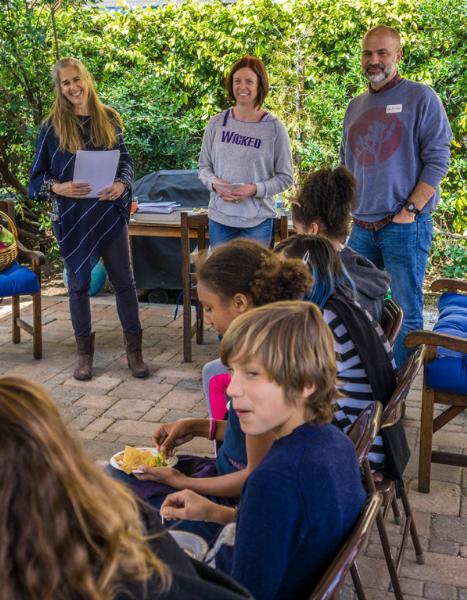
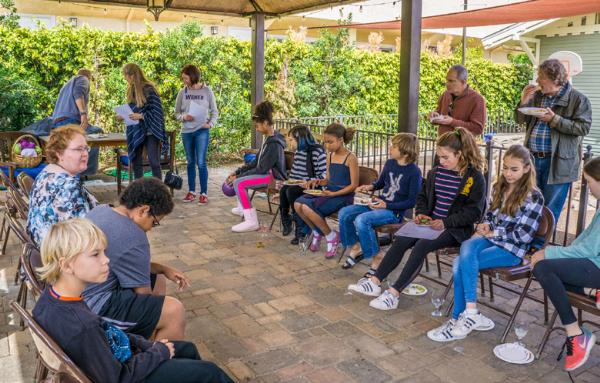
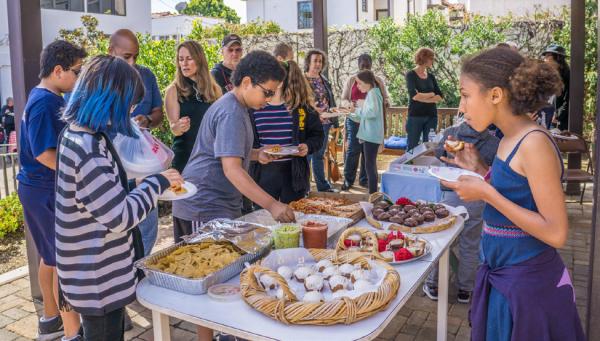
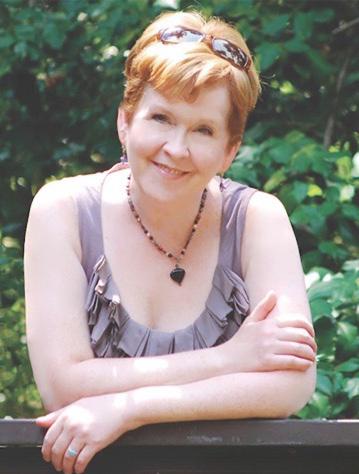 Leslie and Friends
Leslie and Friends
